He named himself as ” Emperor Bokassa I of Central Africa” after overthrowing the president of Central Africa. He organized an insanely expensive coronation that seemed straight out of a movie. He had a mile long cape and a giant gold eagle shaped throne. The ceremony was performed with 3000 lavish guards as well.
When ever we speak about lavish ceremonies to please dictator we always imagine dictators such as Emperor Bokassa of Central Africa or we imagine a middle eastern dictator such as Gadaffi from Libya. Most of us don’t think about one of the most famous figures in history who was also famous for having such lavish ceremonies, Adolf Hitler.
On 20 April 1939 the people of Berlin woke up eager and excited for one the flagship events of the year. On that day the people of Germany were eagerly waiting to celebrate the fiftieth birthday of the german chancellor and Führer Adolf Hitler. The preparation for his birthday was extravagant. Arrangements were made to ensure that Berlin could accommodate people from all over the country. All the streets were adored with swastikas and thronged with well wishers. The city center was adorned with flags,photographs, elaborate garlands, swastika signs with golden eagles on top. The whole East-West Axis were adorned with flags, golden eagles and floodlit pylons. The whole parade was filled with glittering uniforms soldiers and guns.
We often don’t imagine or think about all the splendor that was spent over the Führer’s birthday celebration. Since most of the history about WWII is associated with the merciless killing, things such as exquisite display of money and power by someone such as Adolf Hitler are usually never mentioned.
Similarity between the Führer and Bokassa’s ceremony are uncanny.

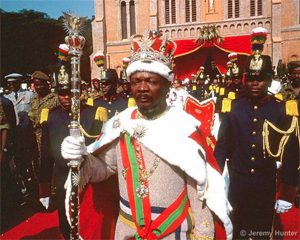
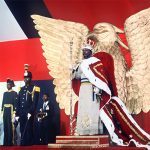
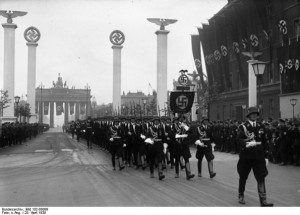
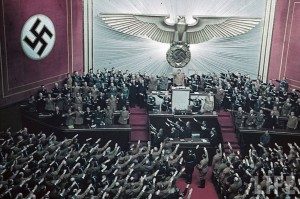
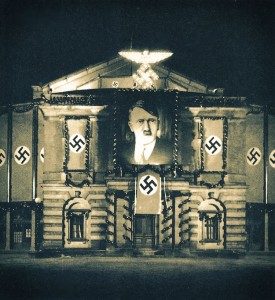
This is interesting, Anmol. When was the Bokassa’s celebration?
^Professor Strom, his celebration was on December 4, 1977
Anmol, this is a brilliant post! Yes it is true that we don’t take into account the opulence or excess that was sometimes present in Pre-War Germany. Bokassa was a military leader who overthrew the democratic parliament in the Central African Republic in the 1970’s then subsequently established a dictatorship. While Hitler’s means of gaining power were political, he nevertheless employed fear mongering tactics to get “The Enabling Act” passed to secure his place as Chancellor.
What I found to be interesting is that history paints all Germans at this time to be sheep mindlessly following Hitler when that wasn’t the case. Moorhouse points out that there were workers who continued to work despite the event, or how some people were simply apathetic at this event. The part that surprised me was that western leaders were sending gifts to Hitler to commemorate his 50th Birthday. I had always been under the impression that the west was very concerned about Hitler and wanted limited involvement with him. I guess in my mind I pictured George Bush sending a gift to Saddam Hussain but this challenged a preconceived notion of the political relationship between Hitler and the West.